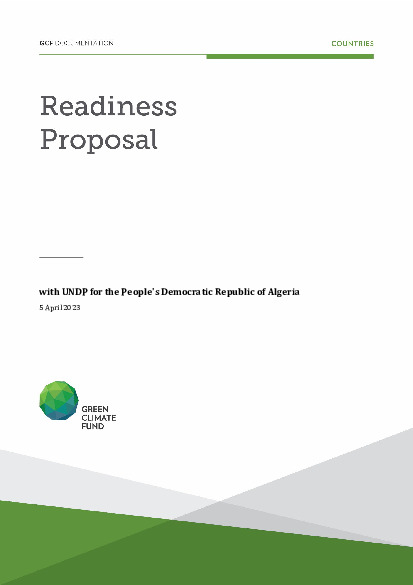Advancing the National Adaptation Plan process in Algeria to address short- and medium-term adaptation needs and lay the ground for long-term adaptation

Advancing the National Adaptation Plan process in Algeria to address short- and medium-term adaptation needs and lay the ground for long-term adaptation
With its 43 million inhabitants, Algeria is the largest country in Africa.Of these, 45% areunder the age of 25 years. Gas and oil are Algeria’s main natural resources, economically significant as the country is a major export of these commodities, while being a net importer of staple food.
Like other Mediterranean countries, Algeria is particularly affected by climate changedue to the high vulnerability of all its main economic sectors. Temperatures increased between 1.5 and 2°C in the region during the twentieth century, while rainfall decreased by about 20% relative to the last fifty years. The hydrological year 2019 – 2020 has been marked by a decreasein rainfallby30% compared to the previous year.The country is facing the increasing occurrence of climate-related disasters such as heat waves, droughts and floods.
Water has become a limiting factor for agricultural development and a major constraint for meeting the country's industrial and domestic needs. Algeria is also witnessing an upsurge in heat waves, a shift of tropical diseases to the North, and a higher incidence of waterborne and airborne diseases,1representing a threat to public health. Algeria ́s vulnerability to climate change exacerbates existing economic difficulties related to the oil crisis.
The Government launched its National Adaptation Planning (NAP) process in 2018,with the objectives to anchor itin the existing plans and strategies, including sectoral development plans.This readiness proposal will support the alignment of Algeria’s adaptation planning process with the National Strategy for the Environment and Sustainable Development (2020-2035), the National Action Plan for the Environment and Sustainable Development (PNAEDD), and the National Climate Plan (PNC).
In addition, the readiness proposal will be aligned with recent initiatives which also contribute to advancing the NAP process in Algeria; in particular: the project entitled "Strengthening Climate Governance for the NDC" managed by GIZ (hereafter referred to as the NDC project), and the project related to the development of the Third National Communication (TNC) supported by UNDP.